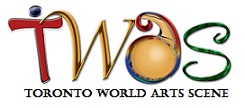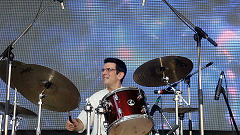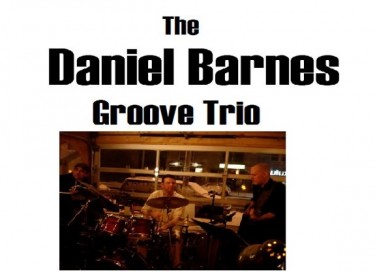Featured Artist – Daniel Barnes
Daniel Barnes
In the ‘TWAS world’ in which I so often find myself, it’s rare that I find and later meet a Toronto-born musician in the midst of a spectacular pageant of African music and culture. But on February 11th of 2012, it was just such a night. Daniel Barnes sat there at his drum kit, very comfortably playing his heart out at Batuki Music Society’s Ethiopian musical perspective at the Glenn Gould Studio in Toronto. I knew instantly that we had something special in common.
It was, in fact, quite startling to see Daniel along with the only other ‘outsider’, John MacLean, amongst Toronto’s Ethiopian jewels, which included Fantahun Shewankochew, Abebe Fikade, Eyerusalem Dubale, Martha Ashagari, Saba Alemayehu, Dawit Tesfamariam, Girma Woldemichael, Bereket Gebremedn, Henok Abebe, Yared Zeleke. But in reading the program, I learned that Daniel had toured with the Queen of Ethiopian music herself, Aster Aweke, and a story began to emerge. It was a story I was determined to hear. .
I began hanging out at the Ethiopian Hirut – Fine Ethiopian Cuisine on the Danforth where Daniel regularly plays and came to know him and his music a little better. It was as if I had come full circle for it was in the Ethiopian restaurant, the Queen of Sheba at Bloor and Dufferin in the late eighties that I’d had my African music epiphany.
When we eventually sat down last month to chat over Italian sweets and beverages at Café L’Espresso at Bloor and St. George, it was immediately clear that Daniel and I shared a unique Toronto cultural history. We’d both grown up with the Canadian classics such as the children’s show Mr. Dress-Up, for which Daniel’s mother Lilly was a writer, but there is much more to it than that.
As Daniel said “Well, you and I are both over forty, we remember what Toronto used to be like, you know, basically run by white Anglo-Saxon Protestants. And then it changed.”
We agree on how fortunate we both were for the opportunity to ride the immigration wave from Africa and the Caribbean and elsewhere, which started in Canada in the 1960s, and to share in the multitude of splendid musics and cultures which accompanied newcomers. I gasped as Daniel recounted his days of playing reggae at the Bamboo with the Excursion, and soca with the Rhythmaires at Cutty’s Hideaway on the Danforth in the late eighties, for it was on the Cutty’s dancefloor where I had pushed forward my childhood love affair with Harry Belafonte to contemporary soca and calypso.
Daniel grew up in the Annex area of Toronto to a very creative and musical family obsessed with all things musical, but jazz in particular, and attended the inner city schools Jesse Ketchum and Oakwood Collegiate. His father, Milton, was an accomplished Vienna-trained classical composer and conductor, and jazz drummer; his mother Lilly, an author, a television scriptwriter and journalist. It was inevitable that Daniel and older brother Micah would follow suit, and forge their own careers in the arts Daniel recalls learning to play jazz, “old school, you know, hanging out in clubs, listening, observing.” As early as seven years old, Daniel’s parents were allowing him to tag along to the top jazz clubs in Toronto such as the Colonial Tavern, and Doug Gallagher’s Basin St. and Bourbon St. And then there was the lesson he got from Dannie Richmond after Charles Mingus called him on stage at the Colonial! It’s this type of experience that influenced this young man deeply.
Always close to his singer/songwriter brother Micah, the brothers Barnes teamed up to play coffeehouses and clubs on the Queen St. strip at an early age, and although their paths diverged for some time, they’ve been collaborating recently in The Micah Barnes Trio with an album due out in the spring.
While Micah joined Toronto’s a capella sensations the Nylons and later moved and worked in LA, Daniel infiltrated the jazz scene in Toronto while at the same time soaking up the emerging musical and cultural influences of the times. It was the late eighties and early nineties and Toronto was alive with music and other performing arts. The aboriginal arts community was flourishing, especially in theatre, and the concept of ‘world music’ was taking hold. Middle Eastern, African, Caribbean and South and East Asian dance and drum companies were popping up, and Latin jazz hit its stride.
These were exciting times, and Daniel embraced it all while at the same time maintaining his lifelong commitment to jazz. He went on to play and tour with some of the biggest names in town including Joe Sealy (they’ve played together for some 22 years now), Jane Bunnett, Holly Cole, Molly Johnson, Hilario Duran, and Richard Underhill, at the same time honing his writing, arranging and composition skills,
In 1997, his former schoolmate and good friend David Wall suggested he get involved with Toronto’s Flying Bulgar Klezmer Band, initially formed by trumpeter David Buchbinder in 1987. This was an important step for Daniel getting in touch with his Jewish roots. He says, “I didn’t grow up with Jewish traditions. My grandmother grew up Jewish during the Russian Revolution and the Second World War. Our family had learned to downplay it. I didn’t identify with my Jewishness until I became an adult. Now, I feel Jewish.”
He remembers the deep passion of David Buchbinder, in particular, when he first joined the Bulgars.. “He came over one night and handed me about thirty cassette tapes and said ‘you gotta get into this music’ and so I did.”. Playing the music was very satisfying and hanging around with the guys felt familiar, like “kibitzing around with my extended family. To feel it in a professional setting was great. And I felt, hey, this is my music.”
An earlier formative experience for Daniel came in 1992 when he was invited to go on tour with Aster Aweke. Daniel’s mother Lilly was a political activist with friends from around the world and Daniel had been picking up Ethiopian rhythms from one of her Ethiopian friends for a while. This same friend ultimately facilitated the introduction of Daniel to Aster. Daniel smiled as he retold the story, “Aster was coming to town and she hadn’t been using a drummer, just a drum machine. I arrived at the Rock Pile (aka Masonic Temple at Yonge and Davenport) and the drum machine was still there!” They soon boxed that up and Daniel joined the tour for ten years, packing in fifteen gigs in twenty-one days, a couple of times a year.
He thinks back to those days fondly. They did big international festivals as well as local Ethiopian gigs, across the world; Amsterdam, London, Geneva, Paris, Athens, Washington D.C. (where there is a large Ethiopian community) the Caribbean, and then one whole month in Ethiopia itself. Wherever they went, they ate Ethiopian food, no matter what the city. The promoter would usually take them to a local restaurant or cook for them. Of Aster he says, “She’s a real natural performer, meant for the stage. People love her, she is such a star. The reaction to her was always incredible.” He remembers meeting Cameroonian jazz saxophone player, Manu Dibango, opening for Mali’s Super Rail Band at one festival for 15,000 people, and jamming with Hugh Masekela and his band, experiences he still treasures. I asked Daniel if he has ever received any negative feedback along the lines of accusations of ‘cultural appropriation’ and he replied, “Not from Ethiopians themselves. They are always gracious and pleased that I am interested in their music, and can actually play it!” But there have been a few remarks. Nothing he couldn’t handle, however. “I feel so privileged to play this music.” And those he plays with, know it.
He’s had a varied and interesting career to be sure, and about the future he is optimistic. I ask him about the state of music and the prospects of making a living as a musician in Toronto, ”Music is alive and well, there’s a ton of artists making hugely valid music, it’s a very creative scene. So music is not in danger. But it’s tough if you want to have money. People are going out less for live music and in recording sessions, the call for humans is less. So much is being done by computers now. I keep my expenses down. I live a simple life in order to have the freedom to make my art, to constantly be playing and be involved in my music and other people’s music.” This is something to be admired and supported.
Daniel recently formed the Daniel Barnes Trio (which includes Barnes, Paco Luviano on bass and Kevin Barrett on guitar) and they have been playing at Hirut. Turns out that the promoter at the Rock Pile all those years ago, Tebebe Woldemichael and his wife Hirut are the owners of Hirut. “That’s why Hirut feels like my home. And it’s a chance to reach out and be based in the community.”
The next shows at Hirut are Thursday, Nov. 14th and 28th with special guest Girma Woldemichael on saxophone.
The trio is working on a new recording too, complimenting Daniel’s two fine solo cds, Culmination from 2003, and Classic Beauties released in 2007. They will take their time with this one but hope to release it late in 2014. He says, “I want to study the music that I’m creating, write the tunes, and I want to give it a lot of time. The jazz aspect in my band is that there are solos. I want our music to be based in danceable steady beats, that’s what defines my group, I want to be able to incorporate a diverse set of cultures and speak to what is happening here in Toronto, without a predominant culture anymore.”
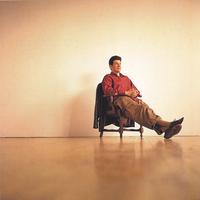
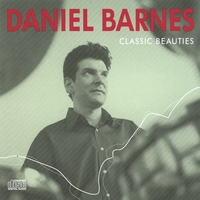 (click on the cd covers to purchase them at cd baby.)
(click on the cd covers to purchase them at cd baby.)
Culmination Classic Beauties
He plans to incorporate some Jewish music in this recording, and Ethiopian music, too, will not be left behind. “What was cool about it, and is still cool about it, is there’s a certain vibe that you get by playing those rhythms and tempos over time…it’s mysterious and amazing and people still love it for that reason, including me.”
